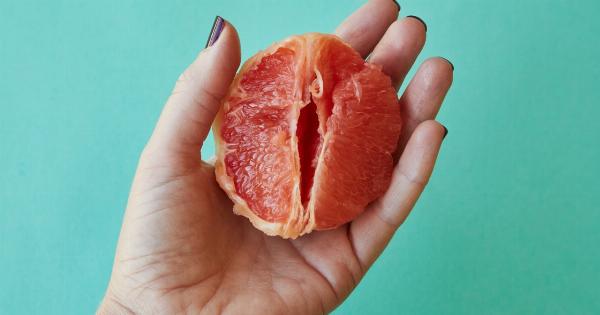When it comes to maintaining optimal vaginal health, there’s more to it than just hygiene. The food we eat plays a crucial role in keeping our body functions in balance, including the delicate environment of the vagina.
The V-Fibration Diet focuses on incorporating specific foods that promote vaginal health while avoiding those that can disrupt the natural balance. By following this dietary plan, you can support a healthier vagina and overall well-being. Let’s explore the foods you should eat and avoid to maintain a happy and healthy vagina.
1. Probiotics: Nurturing the Good Bacteria
Probiotics, commonly known as “good bacteria,” are crucial for maintaining the optimal balance of microorganisms in your vagina.
Including probiotic-rich foods in your diet helps promote the growth of beneficial bacteria that can combat harmful organisms and prevent infections. Yogurt, kefir, sauerkraut, and kimchi are excellent sources of probiotics that should be incorporated into your daily meals.
2. Fresh Fruits and Vegetables: Vital Nutrients for Vaginal Health
Fruits and vegetables are packed with essential nutrients, vitamins, and antioxidants that support overall health, including vaginal health. They help strengthen the immune system, reduce inflammation, and maintain the necessary pH levels in the vagina.
Incorporate a variety of colorful fruits and vegetables into your diet for optimal results. Examples include berries, leafy greens, citrus fruits, and cruciferous vegetables like broccoli and cauliflower.
3. Whole Grains: Fiber for Gut Health
A healthy gut often translates to a healthy vagina. Whole grains, such as oats, quinoa, brown rice, and whole wheat bread, are rich in fiber. Fiber helps regulate digestion, promotes bowel movements, and prevents constipation.
By maintaining a healthy gut, you can reduce the risk of vaginal infections caused by an imbalance in gut flora.
4. Lean Proteins: Building Blocks for Vaginal Tissues
Protein is essential for tissue repair and growth throughout the body, including the vaginal tissues.
Incorporate lean sources of protein like chicken, fish, eggs, tofu, and legumes into your diet to provide your body with the building blocks it needs to maintain healthy vaginal tissues.
5. Water: Hydration for a Healthy Vagina
Staying hydrated is vital for overall health and the well-being of your vagina. Drinking an adequate amount of water helps flush out toxins from the body, supports proper digestion, and maintains vaginal moisture.
Aim to drink at least 8 glasses of water per day to keep your vagina happy and hydrated.
6. Prebiotics: Fuel for Good Bacteria
In addition to probiotics, prebiotics are equally important for maintaining a healthy vaginal microbiome. Prebiotics are non-digestible fibers that promote the growth of good bacteria in your gut and vagina.
Garlic, onions, bananas, asparagus, and whole grains contain prebiotic properties and should be incorporated into your diet.
7. Sugary and Processed Foods: Enemies of Vaginal Health
Excessive consumption of sugary and processed foods can disrupt the vaginal pH balance, leading to the overgrowth of harmful bacteria and yeast. Avoid or limit the intake of sodas, candies, baked goods, and processed snacks.
Opt for healthier alternatives like fruits, unsweetened yogurt, and homemade treats instead.
8. Caffeine and Alcohol: Moderation is Key
While indulging in the occasional cup of coffee or glass of wine is fine, excessive consumption of caffeine and alcohol can adversely affect your vaginal health.
Both caffeine and alcohol can dehydrate the body and disrupt the hormonal balance, leading to vaginal dryness and irritation. Enjoy these beverages in moderation and ensure you stay well-hydrated when consuming them.
9. High-Fat and Fried Foods: Choose Wisely
Foods high in unhealthy fats, such as fried foods and processed meats, can increase inflammation in the body, including the vaginal area. Opt for healthier sources of fats like avocados, nuts, and seeds instead.
Incorporate foods rich in omega-3 fatty acids, such as fatty fish, into your diet as they have anti-inflammatory properties beneficial for vaginal health.
10. Spicy Foods: Proceed with Caution
Spicy foods may not be everyone’s cup of tea, but for some, they can cause vaginal irritation and discomfort.
If you notice that consuming spicy foods triggers vaginal symptoms, it’s best to consume them in moderation or avoid them altogether.
Conclusion: Support Your Vaginal Health with the V-Fibration Diet
The V-Fibration Diet emphasizes the importance of maintaining a healthy diet to support optimal vaginal health.
By incorporating probiotic-rich foods, fresh fruits and vegetables, whole grains, lean proteins, and staying hydrated, you can nurture your vagina and promote a balanced vaginal ecosystem. Additionally, avoiding sugary and processed foods, excessive caffeine and alcohol, unhealthy fats, and spicy foods can help prevent disruptions to your vaginal health.
Remember, everyone’s body is unique, so listen to your body and make adjustments to your diet as needed to achieve a healthier vagina.




























